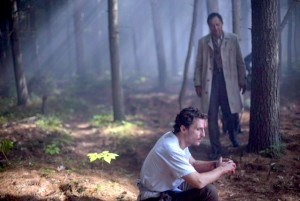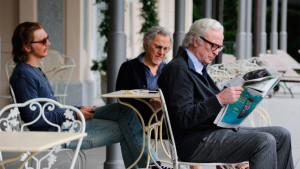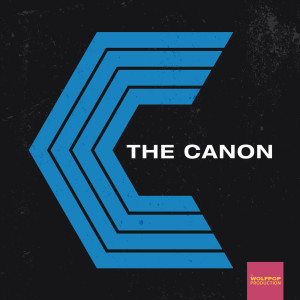Andrew Rostan was a film student before he realized that making comics was his horrible destiny, but he’s never shaken his love of cinema. Every two weeks, he’ll opine on current pictures or important movies from the past.
Right now, one of the largest events in the movie world is happening across the ocean. The Cannes Film Festival is where lots of deals are made for lots of schlock, but also where the world’s greatest filmmakers have long chosen to showcase their newest work. The news filtering over to America has mostly been underwhelming: snippets of The Hateful Eight and Steve Jobs apparently made no one present start talking Oscar. But some films have been getting a memorable reaction, and I’d like to highlight five that we should pay attention to in the next few months.
Amy
 Asif Kapadia, whose last film Senna was received to rapturous applause in 2010, has now made another biography doc, this time about the all too short life of Amy Winehouse. From early accounts, Kapadia has walked the terrific line away from both hagiography and tell-all, and combined a portrait of Winehouse as an ordinary person (with her own loves, demons, and support system) possessing an extraordinary talent, and how this life broke down in the public eye. It could rival Montage of Heck as the year’s essential musical film.
Asif Kapadia, whose last film Senna was received to rapturous applause in 2010, has now made another biography doc, this time about the all too short life of Amy Winehouse. From early accounts, Kapadia has walked the terrific line away from both hagiography and tell-all, and combined a portrait of Winehouse as an ordinary person (with her own loves, demons, and support system) possessing an extraordinary talent, and how this life broke down in the public eye. It could rival Montage of Heck as the year’s essential musical film.
Carol
Todd Haynes is one of the masters of diving into a specific time and place and probing the psychological depths within, revealing that culture and social structure may change but people always possess the same hopes, fears, and desires; see Velvet Goldmine, Far From Heaven, and Mildred Pierce. Now, shooting on location in the southwestern Ohio that is home to many Recorder staffers, Haynes has adapted Patricia Highsmith’s non-thriller The Price of Salt, which was a scandalous book in the 1950s, being a lesbian love story with a happy ending and all. Early reviews have been full of praise, especially for the performances of Cate Blanchett as the married socialite and Rooney Mara as the poorer object of her affection.
Inside Out
Pixar has taken the back seat to their parent company as of late, with Frozen and Big Hero 6 dominating the Disney family conversation. Pete Docter is clearly determined to change that with Inside Out, a return to the unusual concepts of the late 2000s golden run that has already received an ecstatic reception. The idea of personifying the emotions inside a person’s head (an 11 year-old girl’s in this case) is not original, but Pixar is a group I trust to handle it with more insight, care, and emotion than any other, and the cast is a 2015 comic dream team.
The Sea of Trees
 Former Palme d’Or winner Gus Van Sant’s career has oscillated between the inspiring and accessible (Good Will Hunting, Milk) to the downright unusual (My Own Private Idaho, Elephant), and this movie seems stuck in between. Matthew McConaughey plays a grieving widower who goes to the forests under Mount Fuji to commit suicide, then stumbles upon the injured Ken Watanabe, and with their newfound connection finds insights into life itself. It sounds downright melodramatic to the point of sloppiness, and got boos and laughter. On the one hand, it can be hard to openly acknowledge or trust sentimentality, especially in the age of giant CGI movies where sincerity can fly out the window along with robots and aliens. On the other hand, if the film is that bad, we may have a new unintentional comic masterpiece. The melodrama is an easy genre to cross into the so-bad-it’s-good category; some of my guiltiest pleasures are the movies Haynes drew on for Far From Heaven, such as Imitation of Life and The Best of Everything, and I’d welcome a new edition to this group.
Former Palme d’Or winner Gus Van Sant’s career has oscillated between the inspiring and accessible (Good Will Hunting, Milk) to the downright unusual (My Own Private Idaho, Elephant), and this movie seems stuck in between. Matthew McConaughey plays a grieving widower who goes to the forests under Mount Fuji to commit suicide, then stumbles upon the injured Ken Watanabe, and with their newfound connection finds insights into life itself. It sounds downright melodramatic to the point of sloppiness, and got boos and laughter. On the one hand, it can be hard to openly acknowledge or trust sentimentality, especially in the age of giant CGI movies where sincerity can fly out the window along with robots and aliens. On the other hand, if the film is that bad, we may have a new unintentional comic masterpiece. The melodrama is an easy genre to cross into the so-bad-it’s-good category; some of my guiltiest pleasures are the movies Haynes drew on for Far From Heaven, such as Imitation of Life and The Best of Everything, and I’d welcome a new edition to this group.
Youth
 Paolo Sorrentino’s last film, The Great Beauty, was a spiritual successor to Fellini, an Oscar-winner, and one of the best films of the decade at that. Now Sorrentino has made his second English-language movie, with Michael Caine as a widowed composer facing a late-life crisis at a Swiss resort and ruminating on his past with best friend Harvey Keitel and new friend Paul Dano. Sorrentino is a master of combining sharp dialogue and striking imagery to create deep, real emotion and philosophical insight, and I’m excited to see what he does with a new setting and a dream line-up of actors, for the aforementioned trio are joined by Jane Fonda and Rachel Weisz. (The Great Beauty lacked a great female part so this is only cause for further excitement.) I anticipate this could be another addition to the modern canon.
Paolo Sorrentino’s last film, The Great Beauty, was a spiritual successor to Fellini, an Oscar-winner, and one of the best films of the decade at that. Now Sorrentino has made his second English-language movie, with Michael Caine as a widowed composer facing a late-life crisis at a Swiss resort and ruminating on his past with best friend Harvey Keitel and new friend Paul Dano. Sorrentino is a master of combining sharp dialogue and striking imagery to create deep, real emotion and philosophical insight, and I’m excited to see what he does with a new setting and a dream line-up of actors, for the aforementioned trio are joined by Jane Fonda and Rachel Weisz. (The Great Beauty lacked a great female part so this is only cause for further excitement.) I anticipate this could be another addition to the modern canon.
And speaking of the canon…
The Canon: Film Criticism as Screwball Comedy
From films of the future, we turn to films of the past. Wolfpop, Paul Scheer and Matt Gourley’s new spinoff podcast network from Earwolf, produces among many superb shows a program that could serve as a terrific guide for the aspiring film geek wanting to learn more about classic cinema. The Canon, which runs for a brisk hour per episode, takes the Siskel and Ebert formula and injects a vigorous new life into it. Devin Faraci of Birth. Movies. Death. (formerly Badass Digest) and Amy Nicholson of LA Weekly look at one film a week, or pit two films head-to-head, and attempt to determine if their pick belongs in the Canon of Great Cinema.
What makes The Canon such a delightful listen is that the hosts’ dynamic is less Siskel and Ebert and more Grant and Hepburn, Hope and Crosby, or even Martin and Lewis. Faraci is the wild joker of the show. A former community activist with a clear liberal social conscience, Faraci ridicules the research Nicholson always bring and loudly trumpets reading the text itself and figuring out a film’s worth through its construction and values. The key word there is “loudly:” Faraci’s style is emphatic, declarative, and given to all-or-nothing judgments even when he presents very nuanced interpretations. Nicholson is the straight woman. Every bit as passionate about film as her co-host, her persona is that of a dryly witty, unflappable figure who calmly tosses every volley of Faraci’s right back at him.
This is important because of The Canon’s one cringeworthy flaw. However much Faraci comes across as progressive, and in several episodes criticizes films for having backwards portrayals of women, his browbeating of Nicholson can give pause. He frequently describes her opinions as “wrong” and seems to take delight in lambasting her. In their episode on The 400 Blows, when Nicholson lauds the movie but still criticizes it for being unfair to the female characters, Faraci responds “This is a great film and I’m sorry you don’t like it,” which is not what she said. However, these discomforting bits are countered by the sense that for all their arguing, Faraci and Nicholson have a genuine warmth and respect for each other, and their mutual excitement over film, manifesting both in gushing praise and pointed barbs, makes every episode a delight.
 The Canon has no throughline so a listener can leap in at any point, although for new episodes one can vote in the show’s online forums to determine if a film will make in into the Canon or not. There are two main types of episodes. In some, Faraci and Nicholson are at loggerheads from the start; they have memorable fights to the death over Inception (he loves it, she thinks it’s meaningless) and the Disney Renaissance (he hates it, she reveres Beauty and the Beast). In others, they agree on a film’s merits and their discussions become fascinating dives into the complexity of aesthetic opinion. They decry Blade Runner, call Forrest Gump the most misanthropic film ever made, celebrate There’s Something About Mary, and deflate the mythology of John Hughes in examining Pretty in Pink.
The Canon has no throughline so a listener can leap in at any point, although for new episodes one can vote in the show’s online forums to determine if a film will make in into the Canon or not. There are two main types of episodes. In some, Faraci and Nicholson are at loggerheads from the start; they have memorable fights to the death over Inception (he loves it, she thinks it’s meaningless) and the Disney Renaissance (he hates it, she reveres Beauty and the Beast). In others, they agree on a film’s merits and their discussions become fascinating dives into the complexity of aesthetic opinion. They decry Blade Runner, call Forrest Gump the most misanthropic film ever made, celebrate There’s Something About Mary, and deflate the mythology of John Hughes in examining Pretty in Pink.
I particularly recommend The Canon because for someone who feels behind in their movie knowledge, the podcast points the way towards both films worth seeing and offers guidance on how to evaluate films, all the while being as funny as hell. It’s a terrific combination.
The Canon‘s hosts are on twitter at @devincf and @TheAmyNicholson. Photographs from Indiewire, Movie City News, Variety, and Wolfpop.






